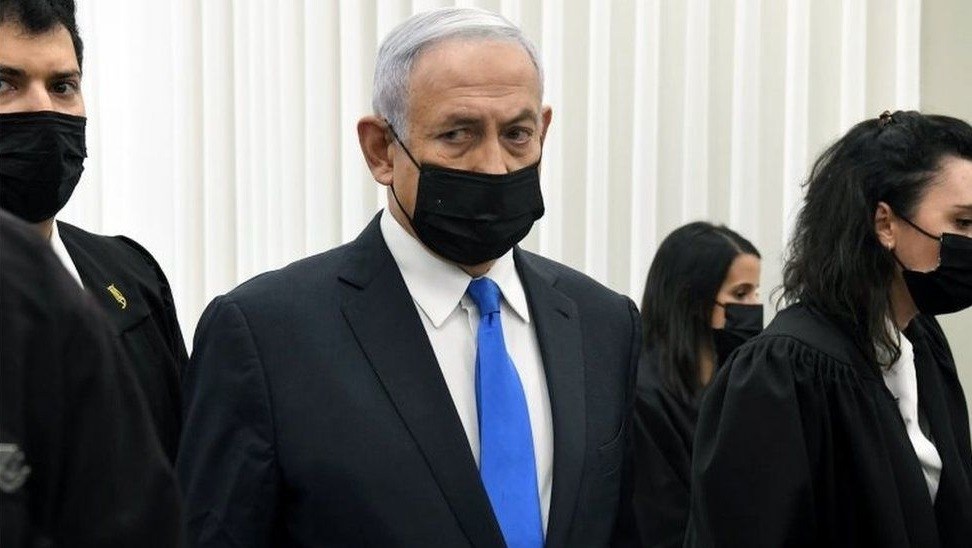The much-delayed evidentiary stage of the trial against Israel’s prime minister Benyamin Netanyahu, indicted on charges of bribery, fraud and breach of trust, took place on Monday in a district court in Jerusalem and ended quickly with the prime minister and his co-defendants pleading not guilty to the charges.
His lawyers claimed that the trial should be further delayed because of technical-legal issues while the Knesset Speaker, from the same party as Netanyahu, called for the trial to be postponed until after the snap elections on 23 March to prevent any “election interference”.
In fact, the elections, the fourth in less than two years, were imposed on Israel because of Netanyahu’s refusal to pass the state budget. His intention is to achieve at least 61 mandates of the Parliament so that it will grant him immunity or protection against prosecution as long as he continues as prime minister.
He could have been forced by the Supreme Court to suspend himself from his duties while handling his trial but this did not happen. Instead, political considerations have been allowed to influence his decisions on lockdowns and their enforcement during the coronavirus crisis.
Last May, the first time Netanyahu appeared in court, the trial became a show with Netanyahu, accompanied by his most loyal ministers, lashed out against media and the law enforcement authorities and accused them of concocting the charges against him.
Show trials take place in dictatorships where confessions are extracted and the verdict determined in advance. This is not the case in Israel, where anyone, including the prime minister, can be ridiculed in cartoons. The trial against Netanyahu has become a show because it might take several years without any justice served.
While still claiming that he has been framed, this time Netanyahu returned after half an hour to his office to continue to manage the coronavirus crisis in the country. Netanyahu and his trial have polarised the country, with his base believing in his innocence or not caring about alleged corruption and the other half of the country desperately wanting him to resign or being convicted.
The outcome of the elections is uncertain and will depend on whether Israel will manage to become the first country in the world to exit the pandemic with a majority of its population having been vaccinated thanks to vaccine deliveries for which Netanyahu takes the credit.
The preliminary figures of the vaccination campaign are hopeful, with only about 0.07 percent having been infected of those that have been vaccinated twice, but it has not yet resulted in any significant reduction in the daily number of new infections.
When Israel exited its third tightened lockdown on Sunday, the situation was not much better than a month earlier. Israel main international airport is still closed for non-essential incoming and outgoing traffic, a drastic measure after it had been open for political reasons during the crisis and allowed Israelis to travel to and return from red countries.
The vaccination campaign started with health care staff and elderly over 60 and has by now reached all age groups above 16. In a court ruling last week, the prison authorities were forced to vaccinate all inmates against objections from the internal security minister. On Tuesday, a campaign started in Tel Aviv to vaccinate asylum seekers.
However, vaccination rates among the Arab and Jewish orthodox communities are well below the overall average (above 80 percent among 60+) and in East Jerusalem extremely low. A growing vaccine reluctance has also been noticed in the younger age groups.
The Brussels Times

